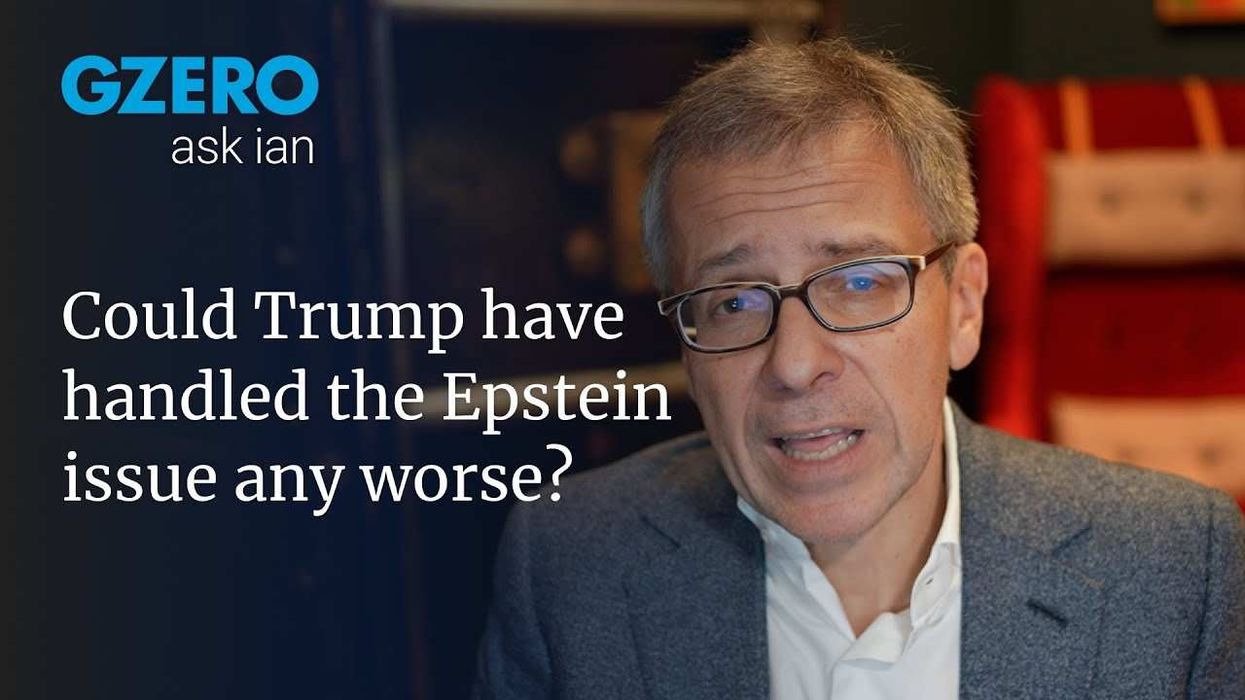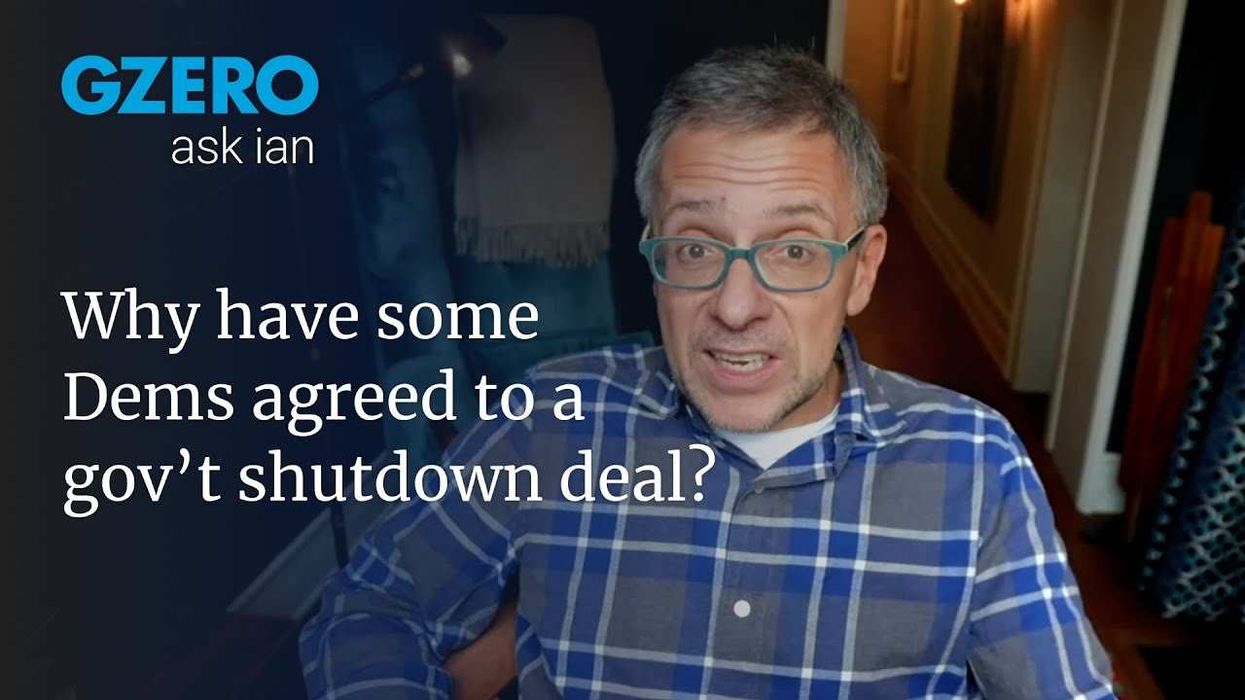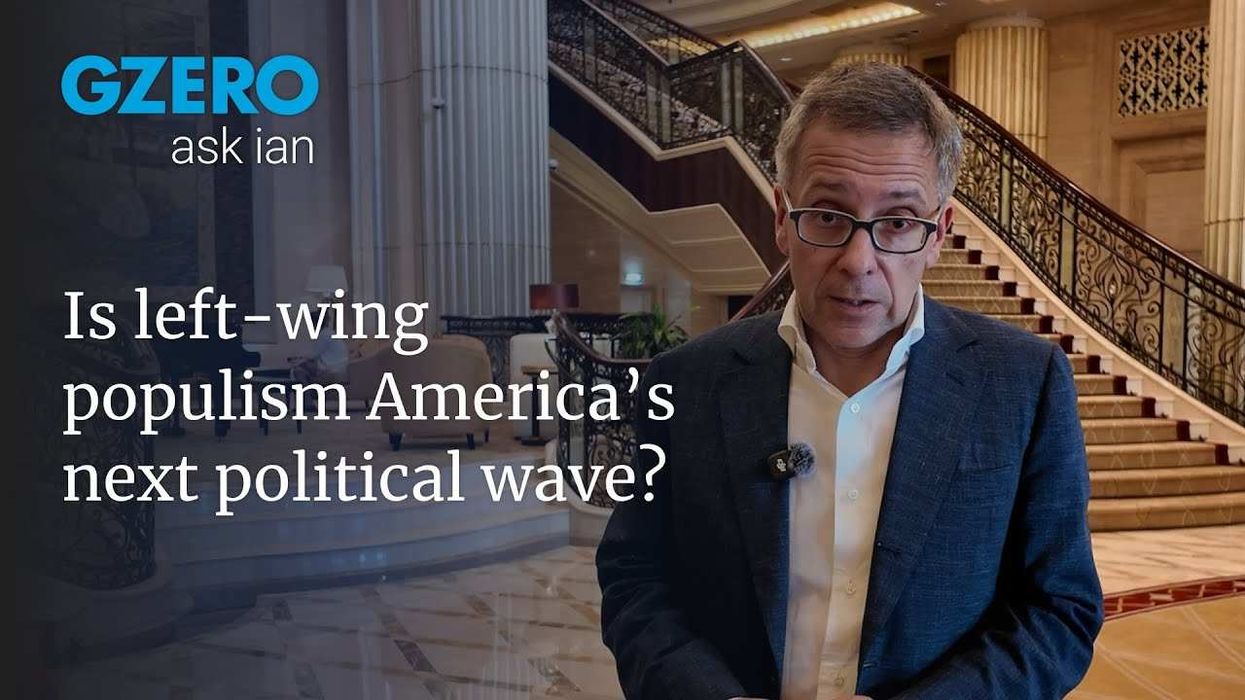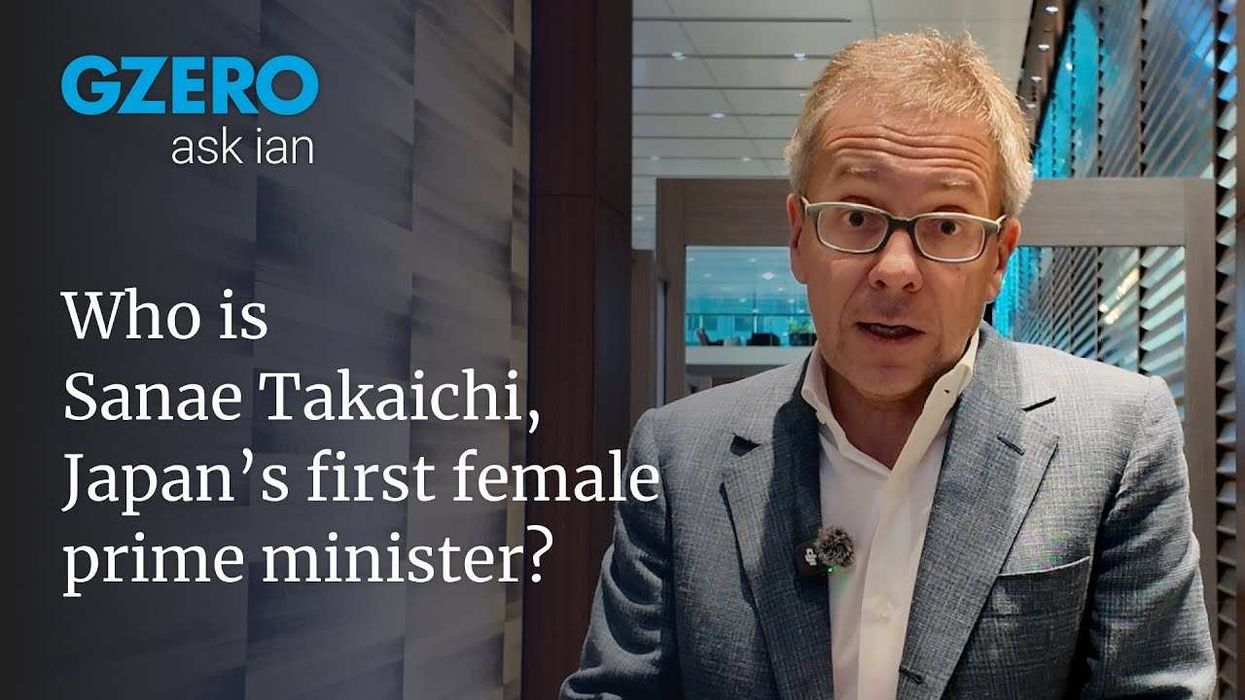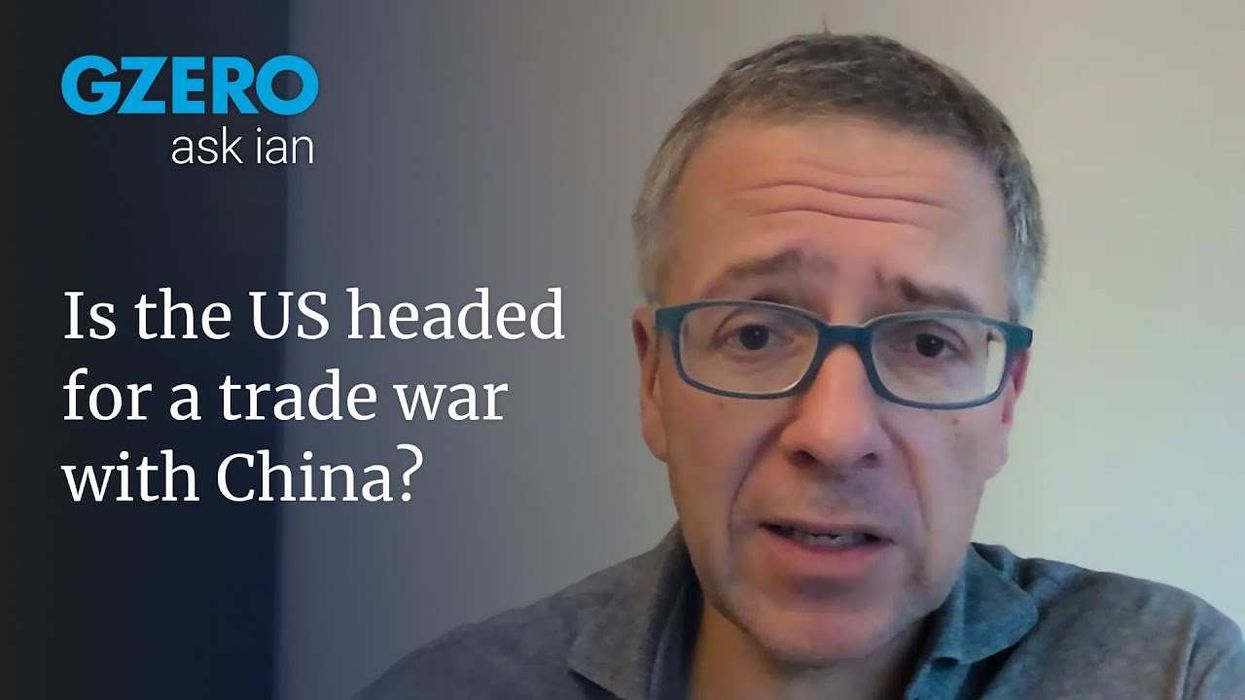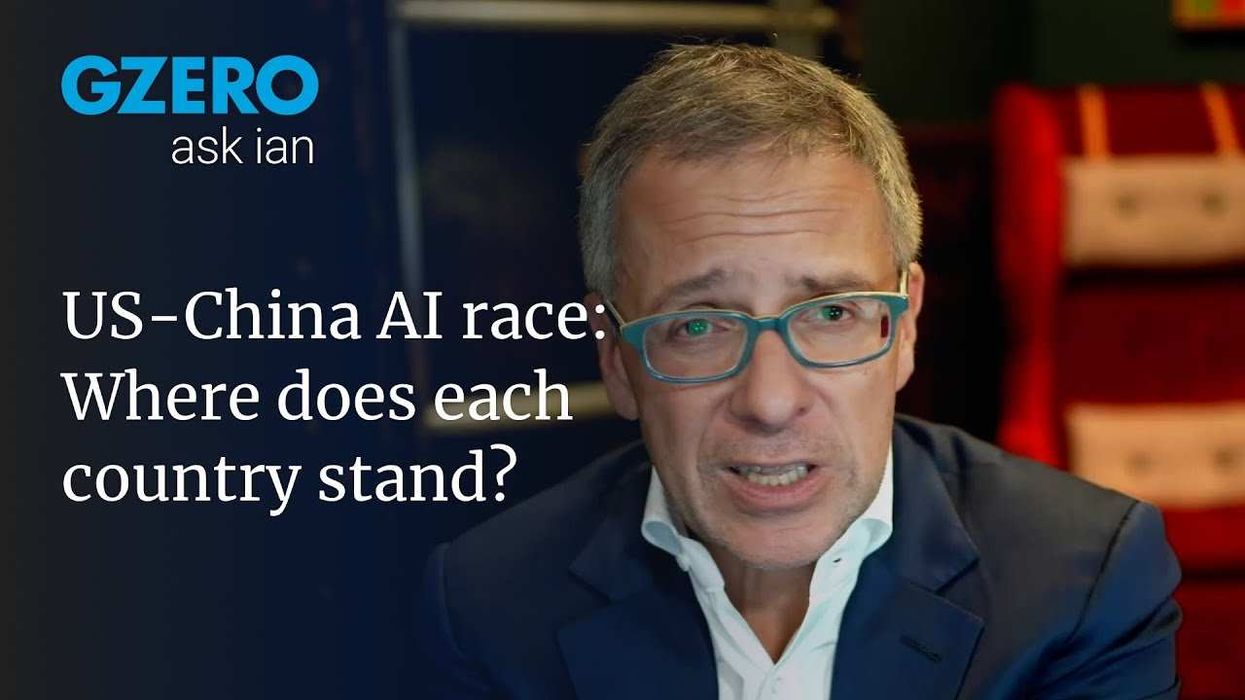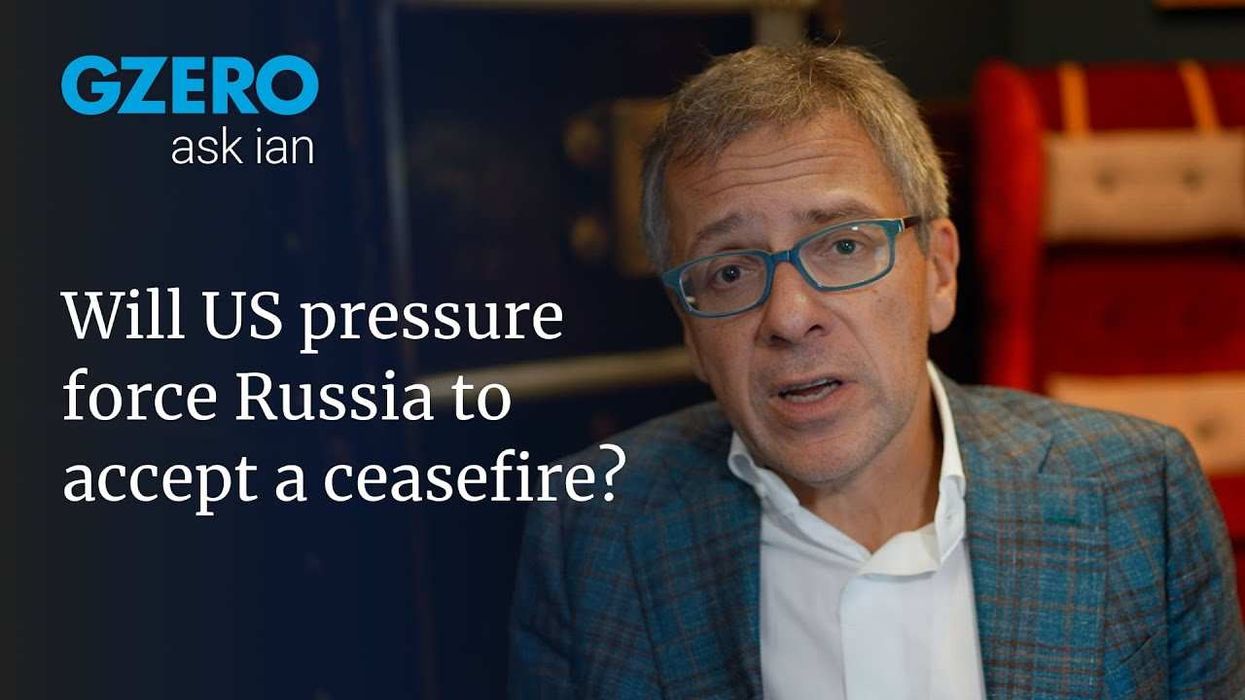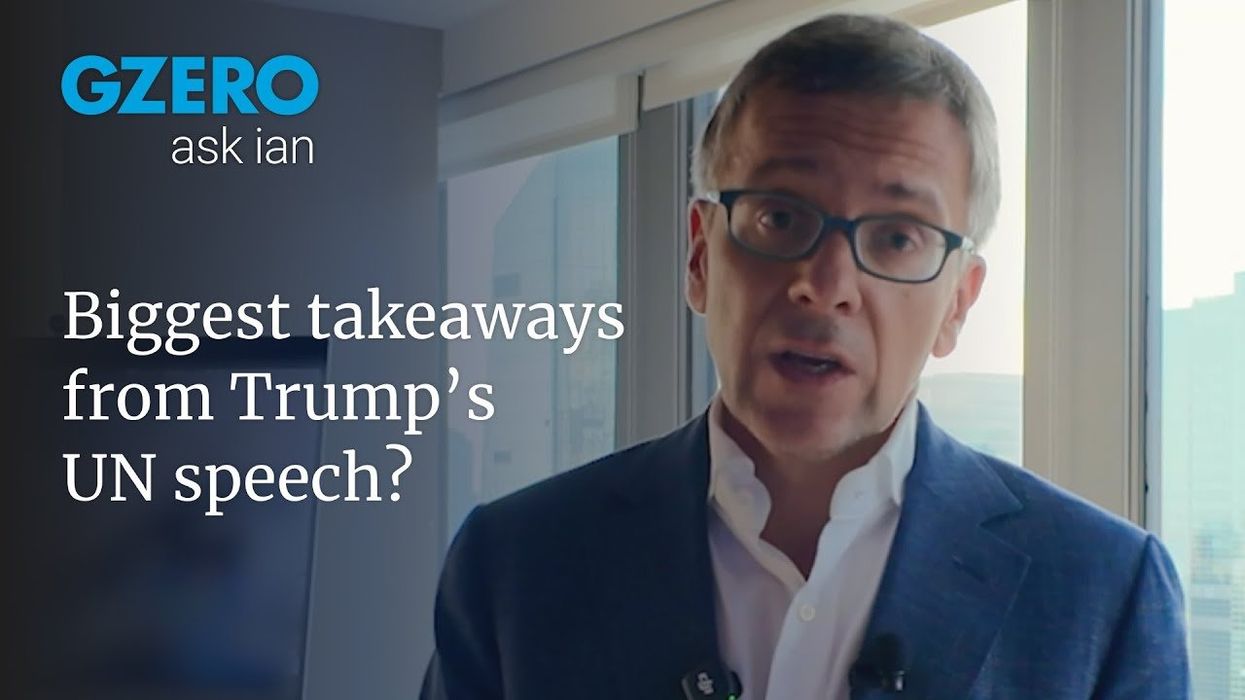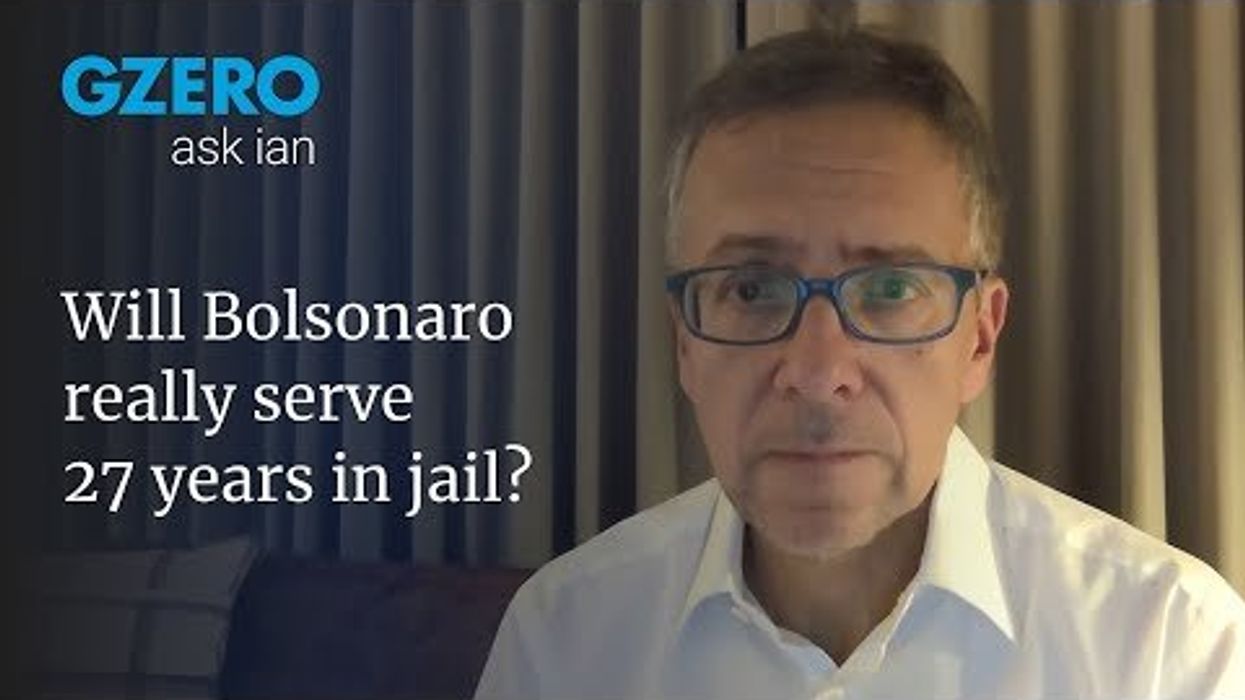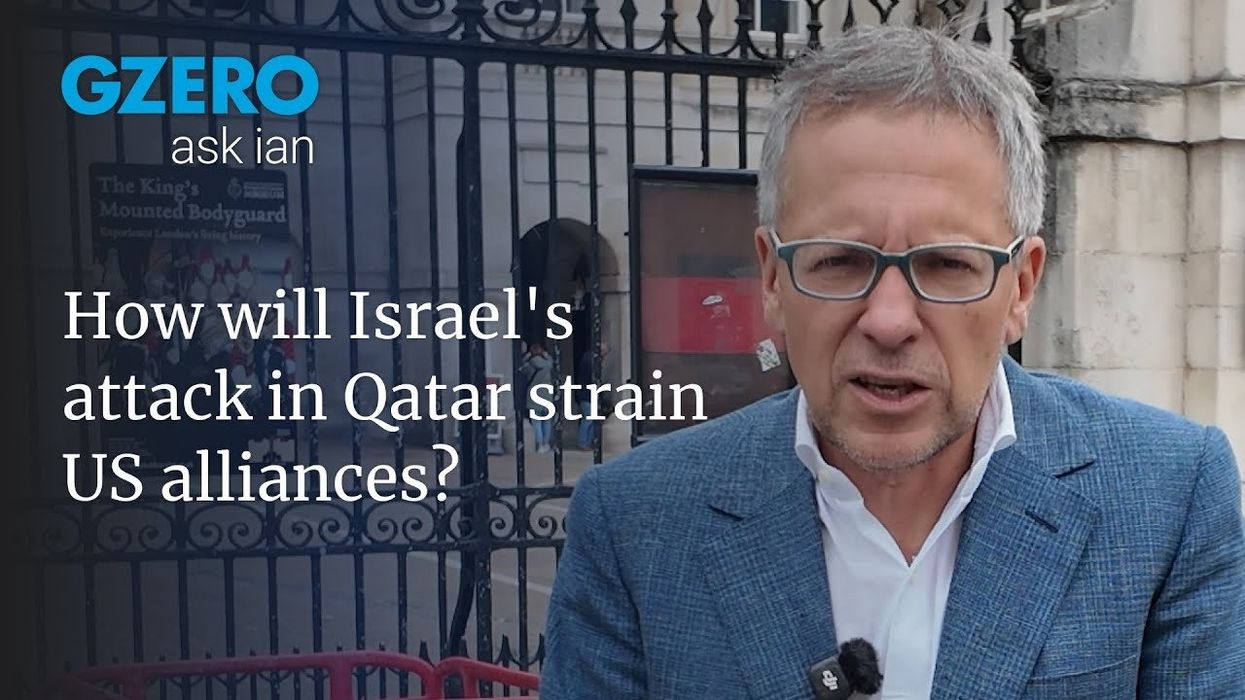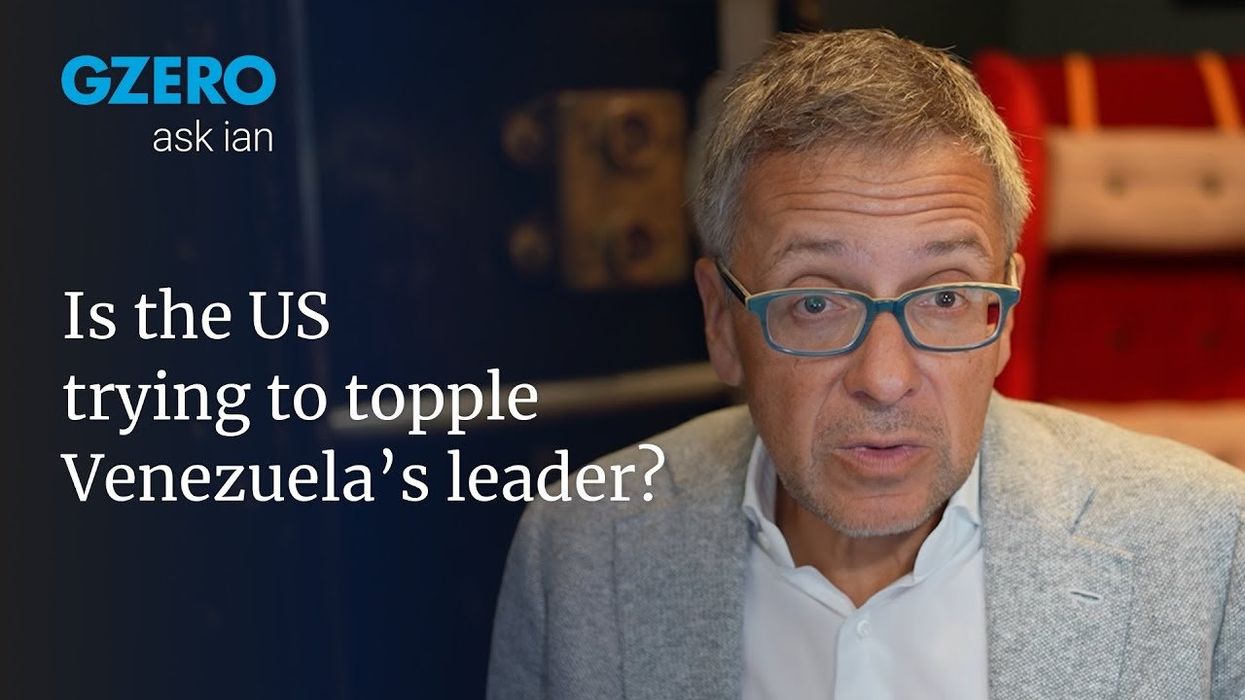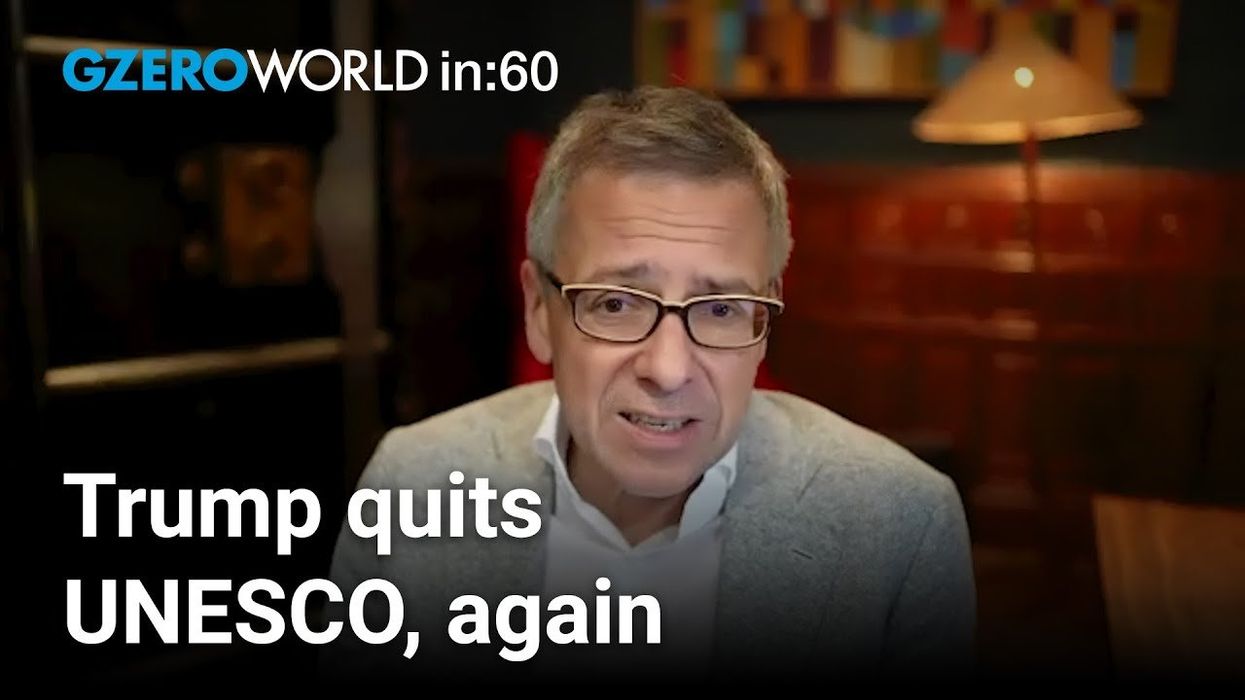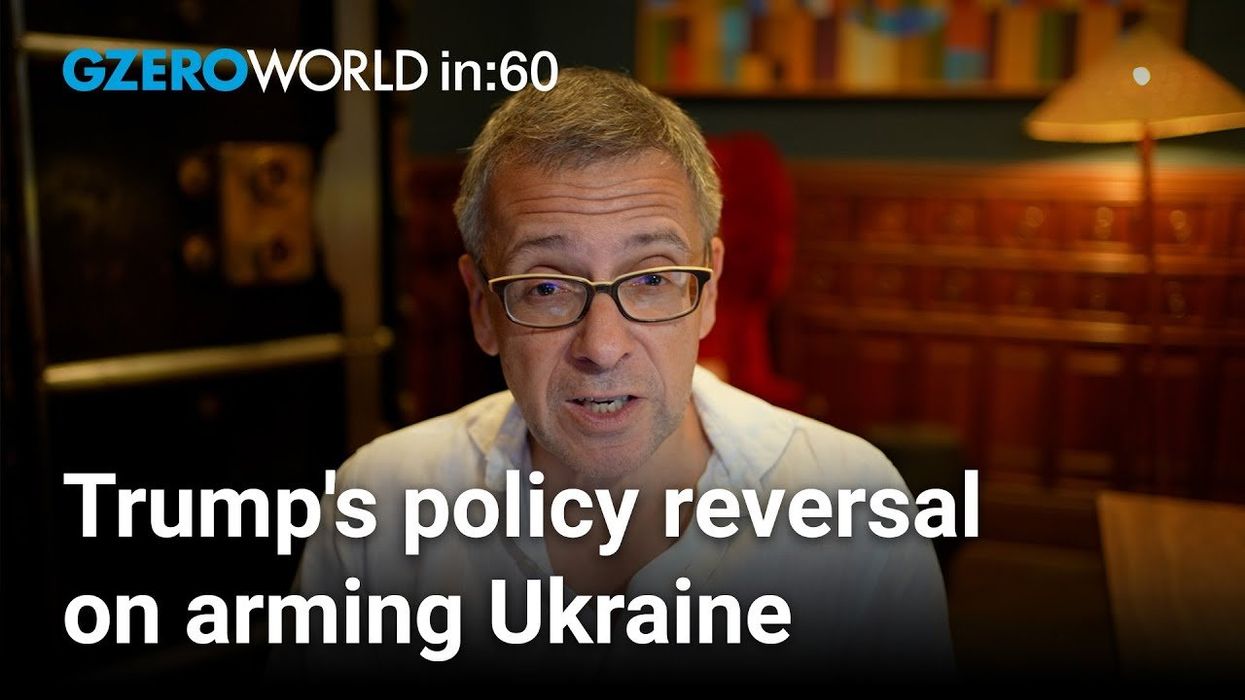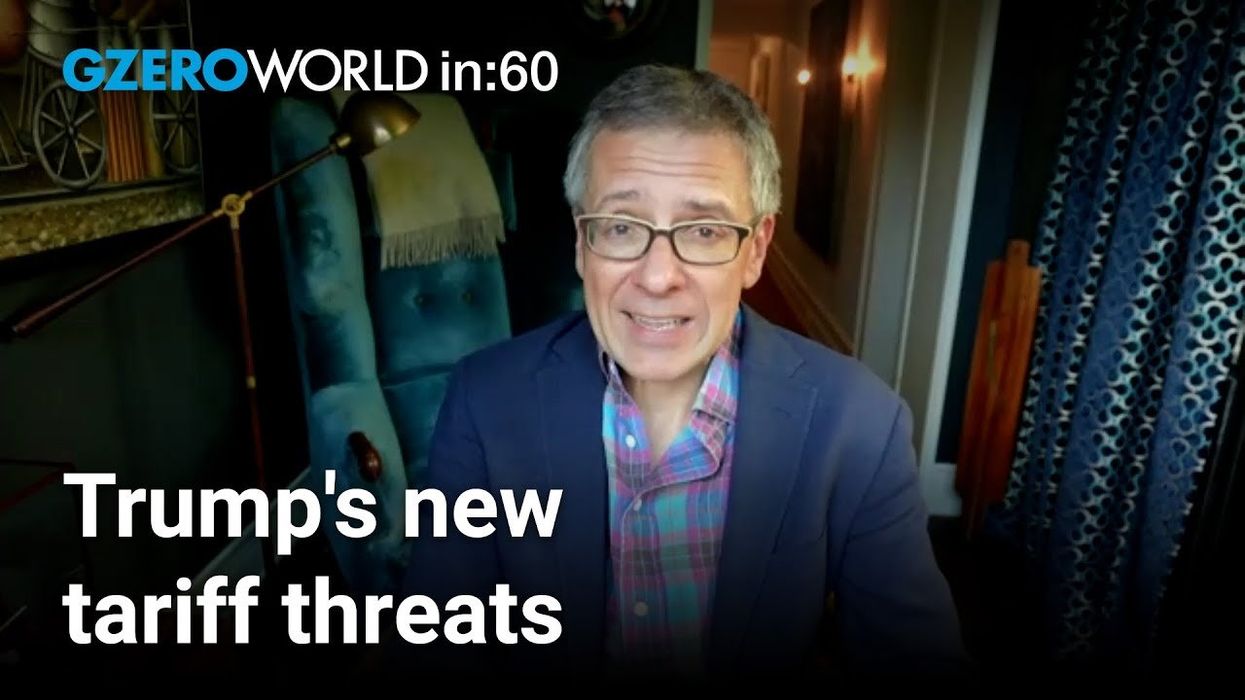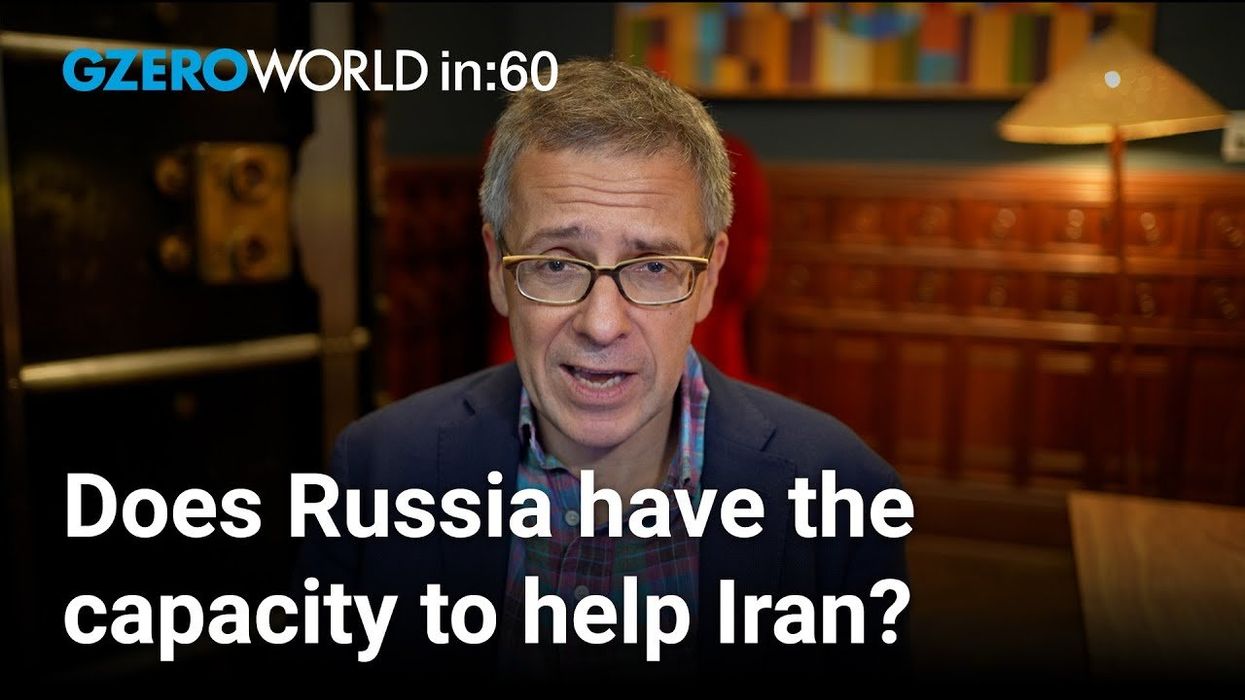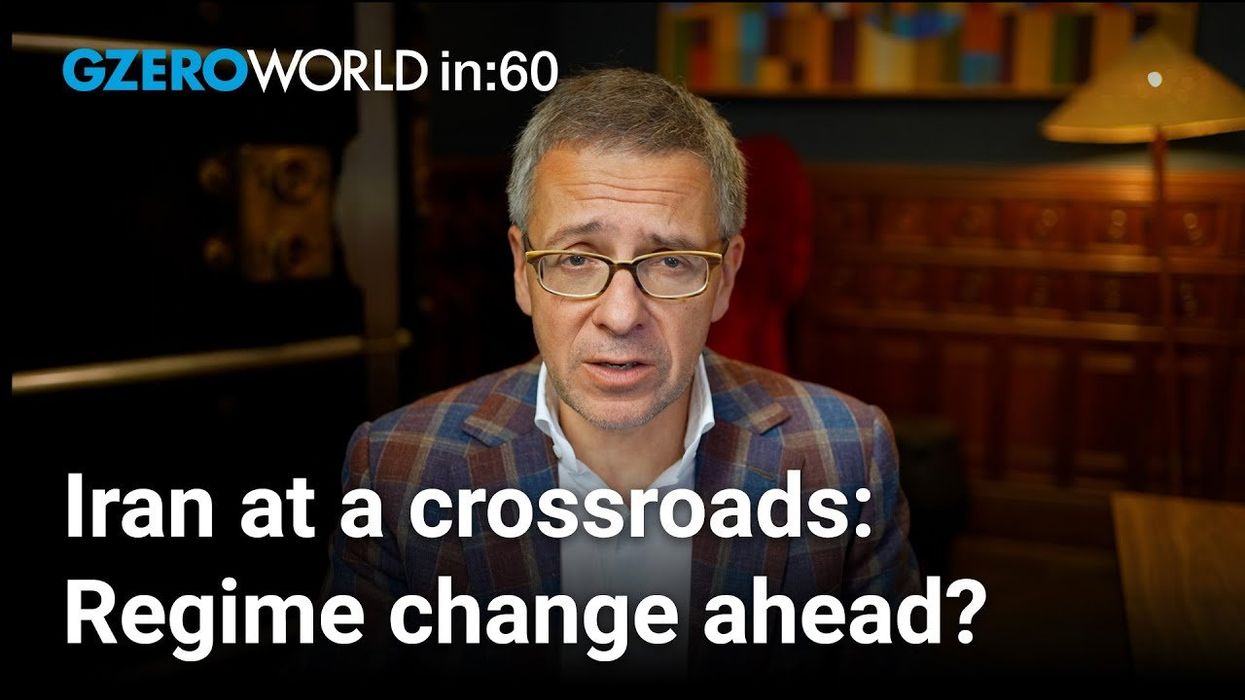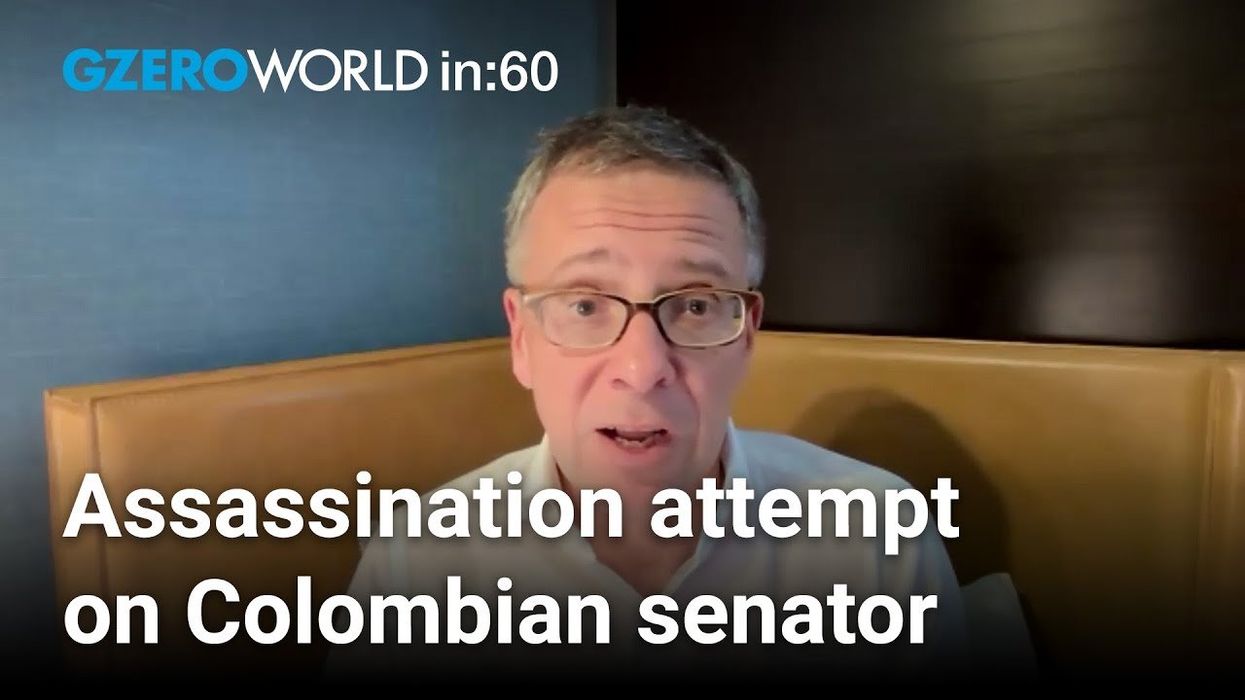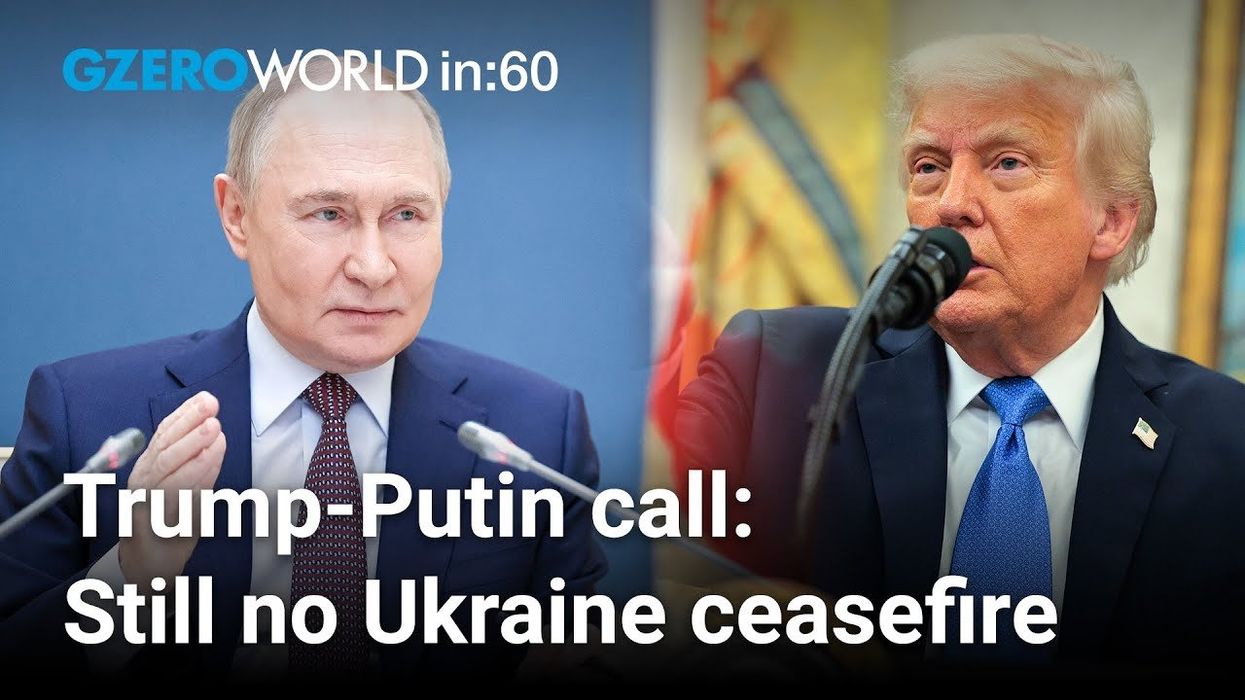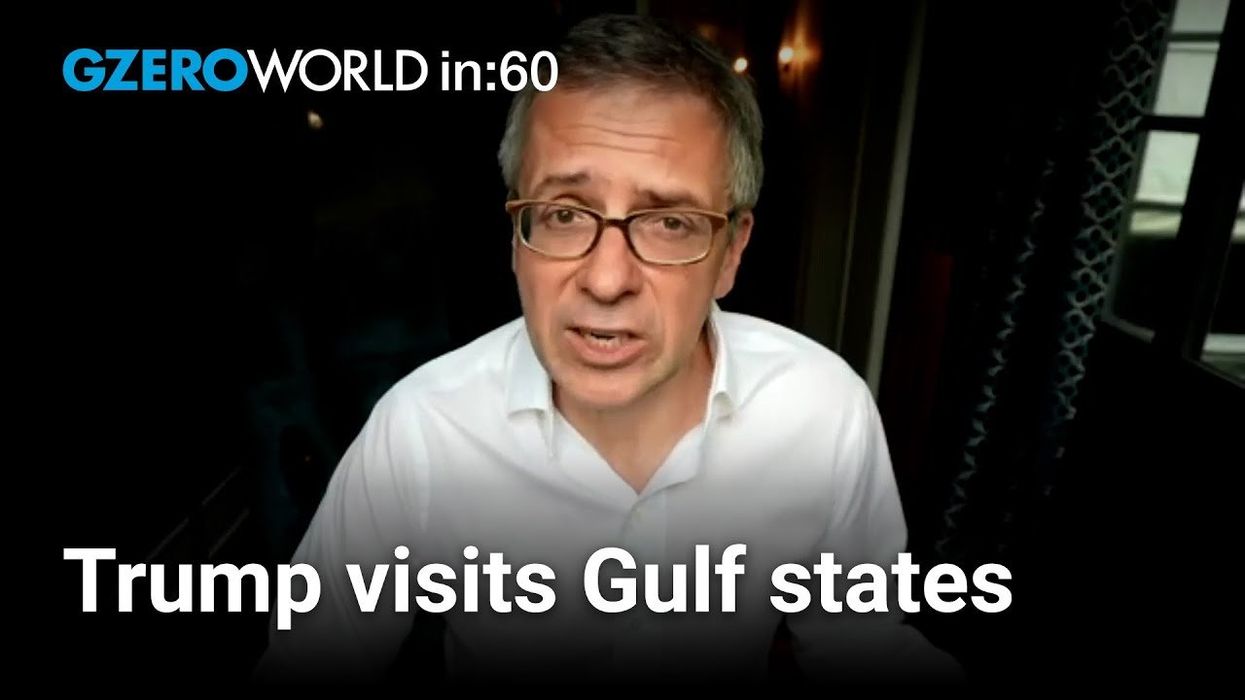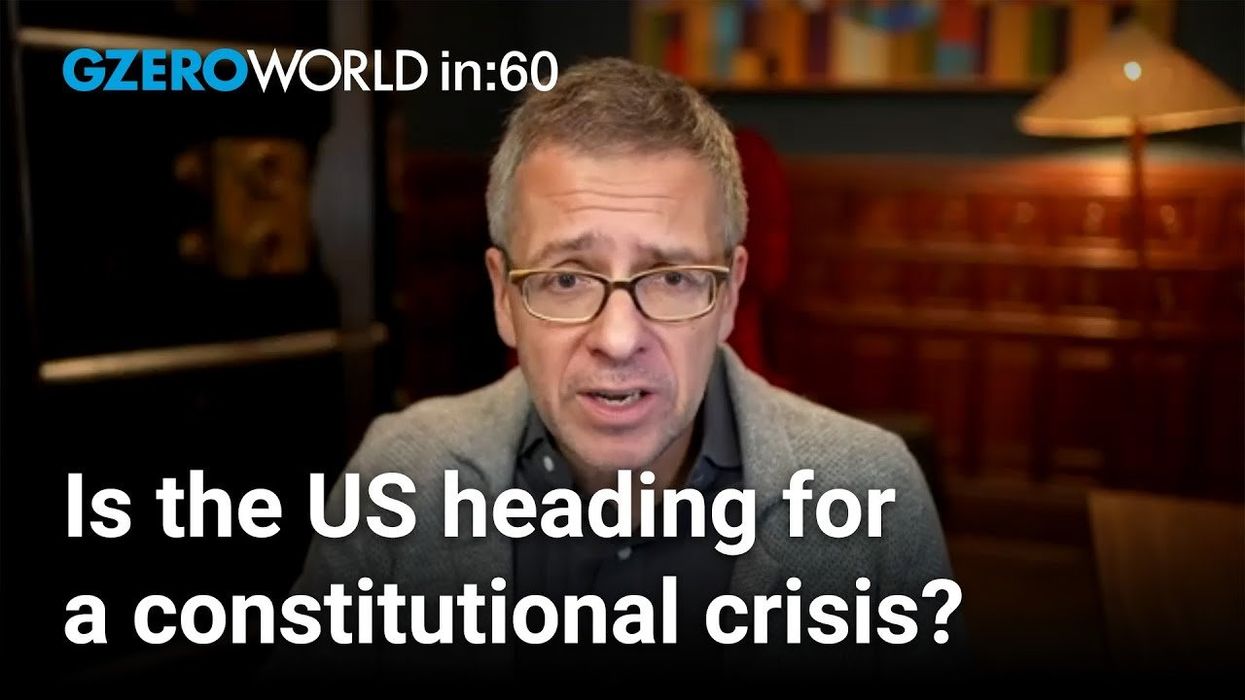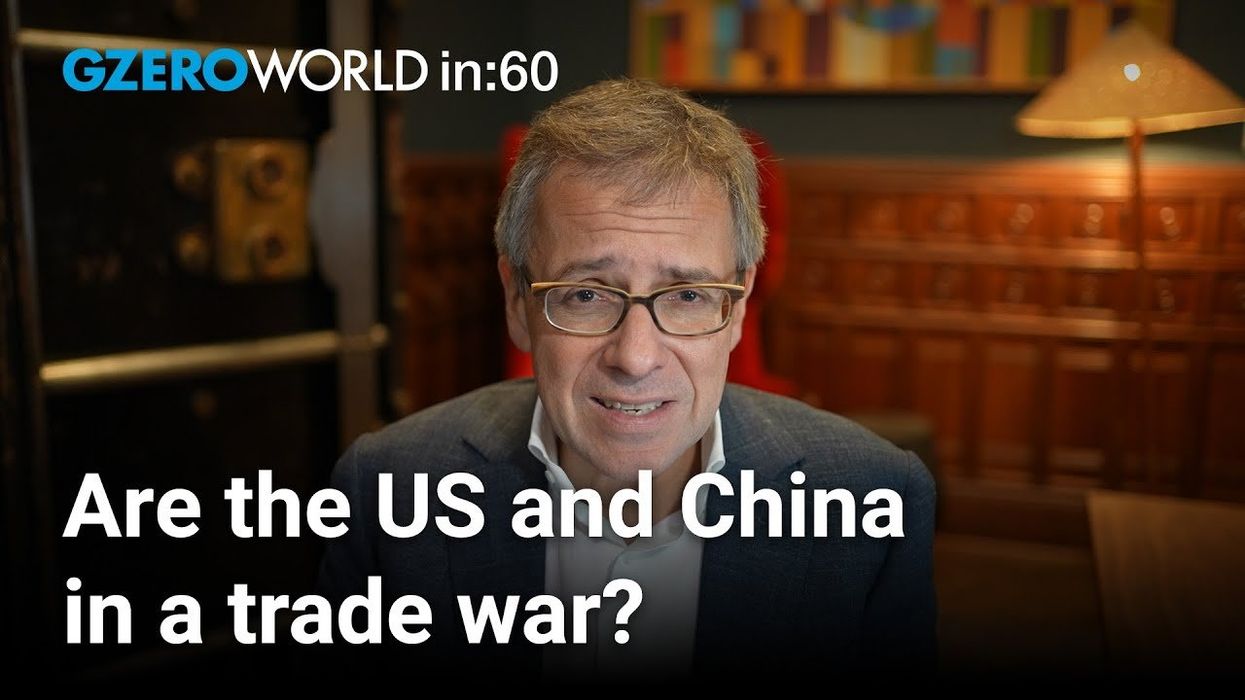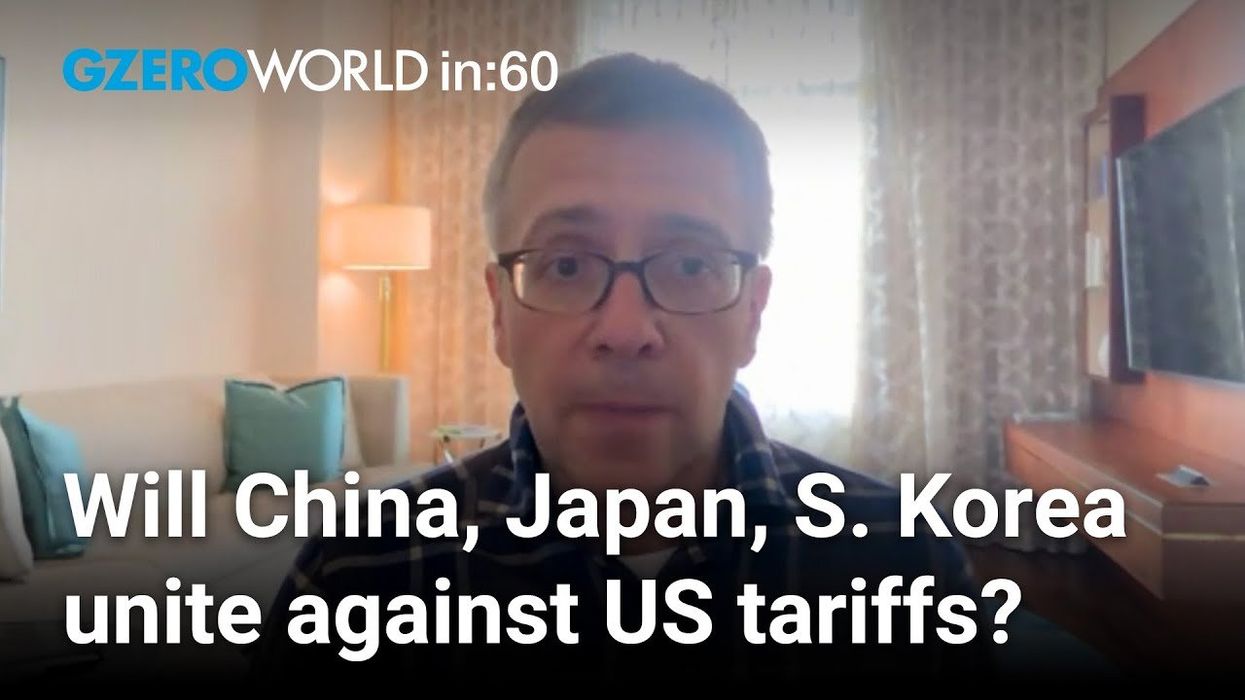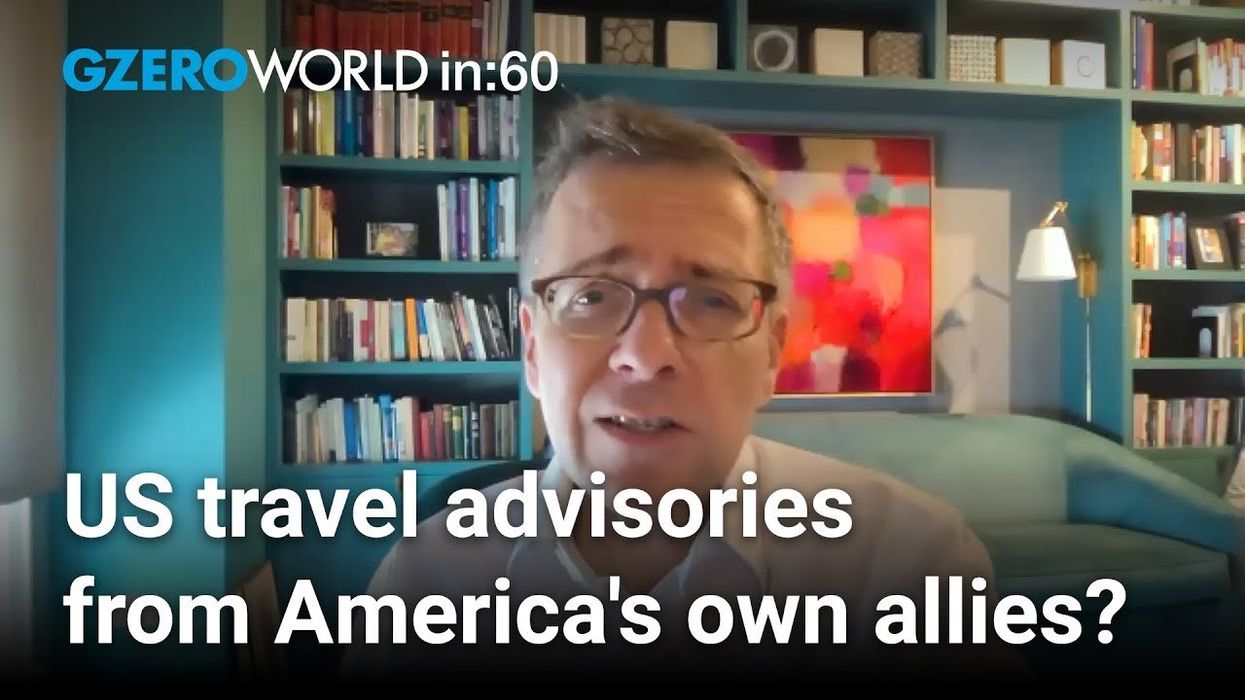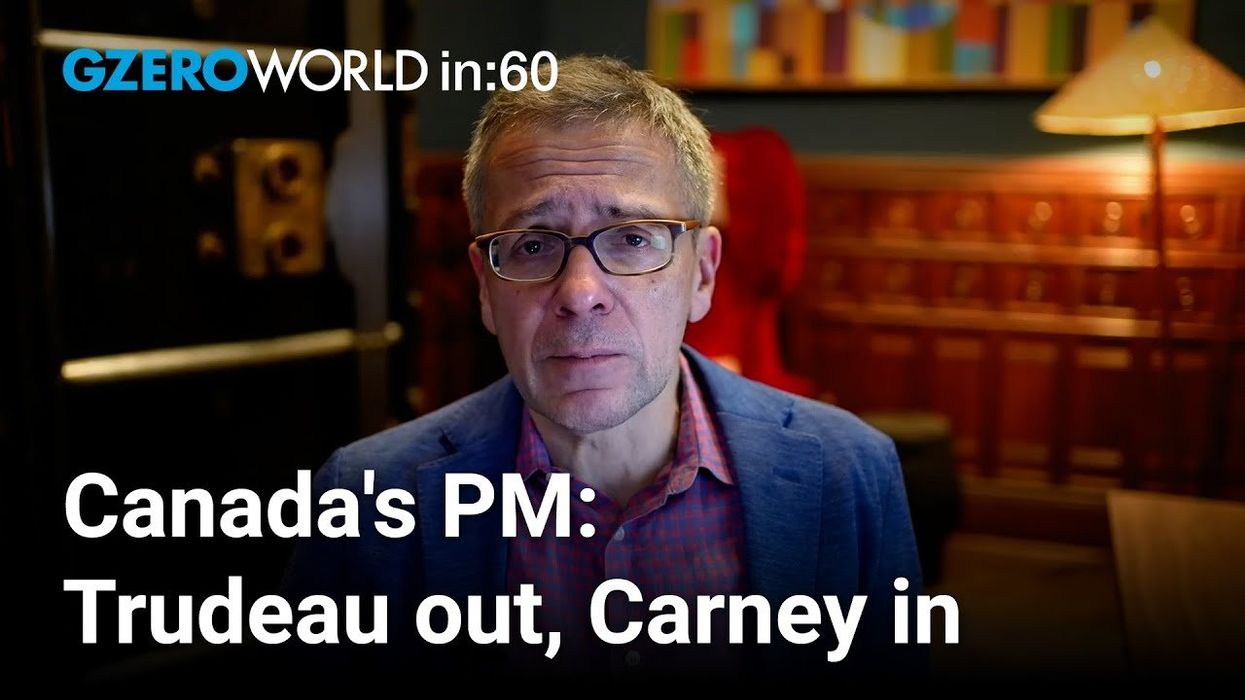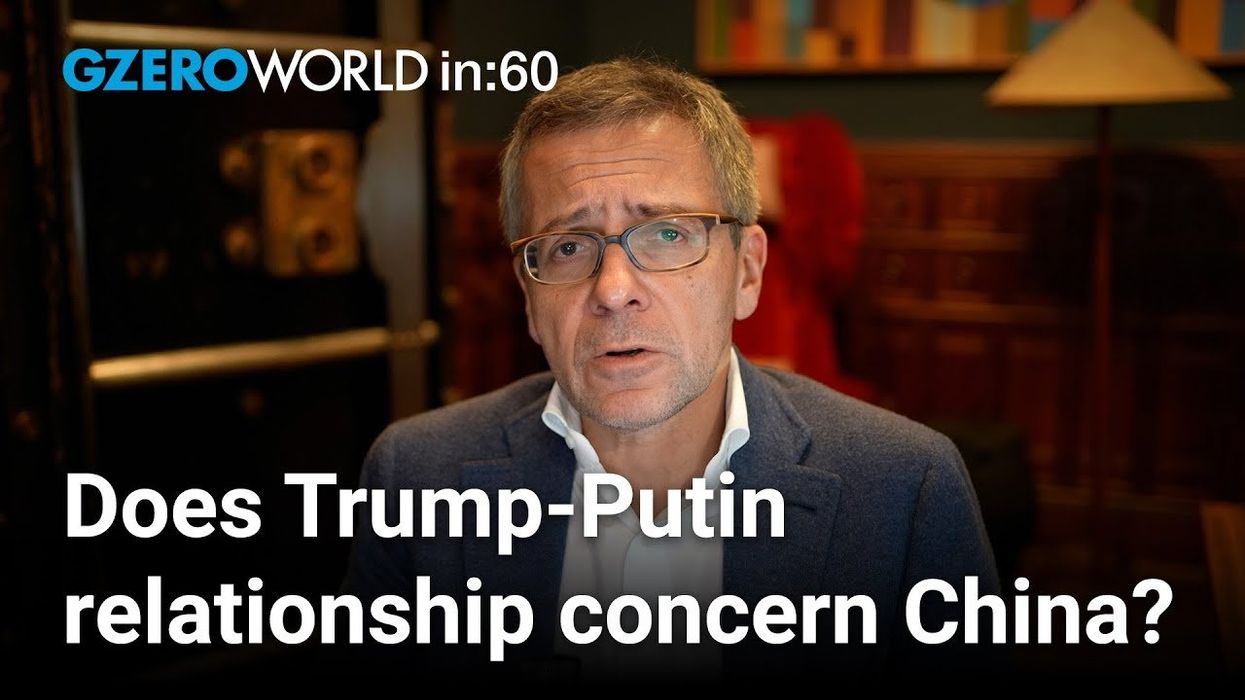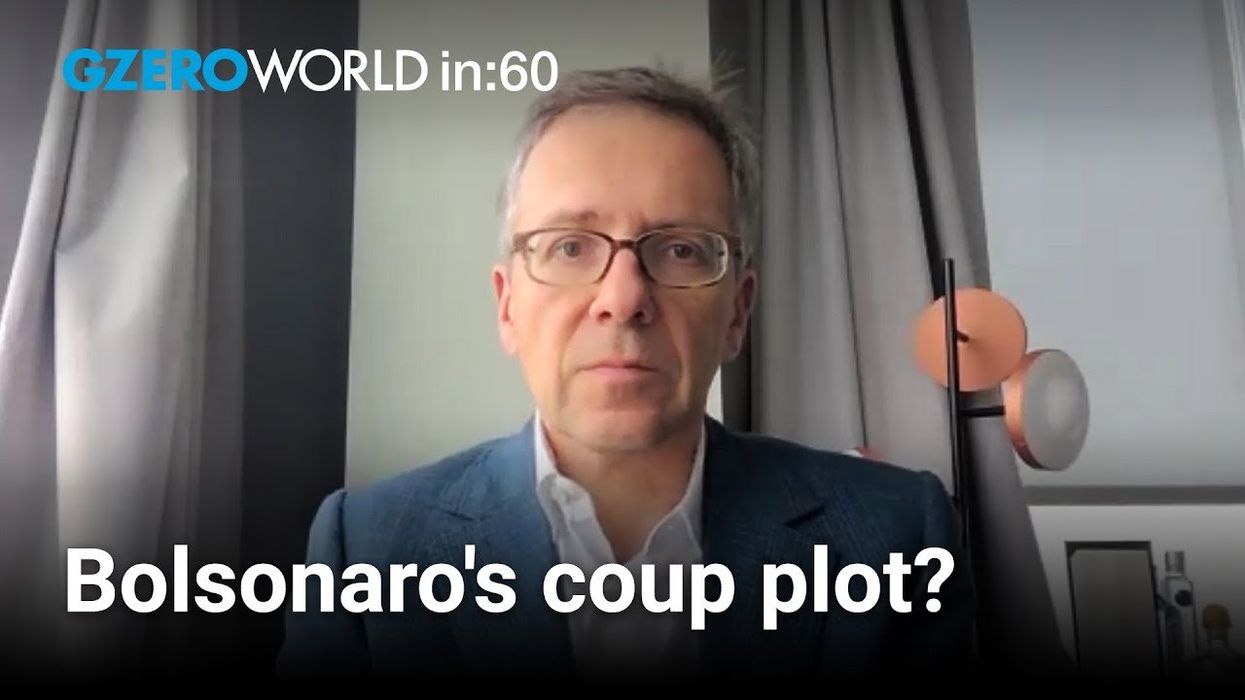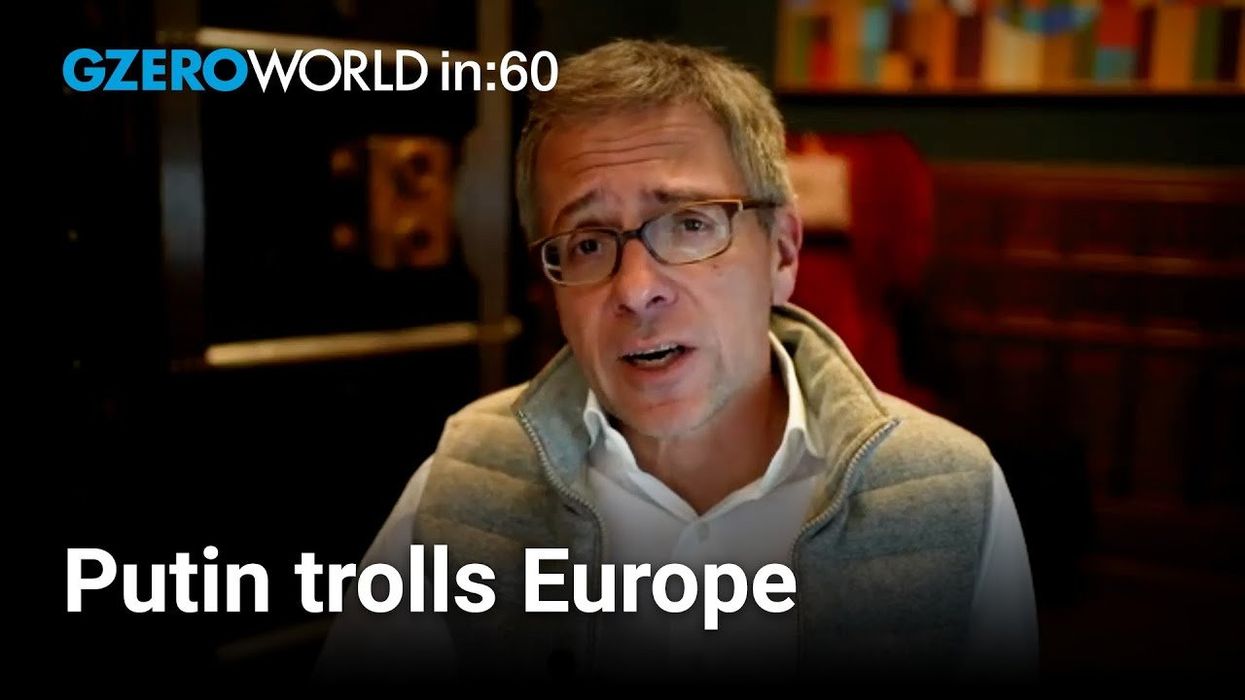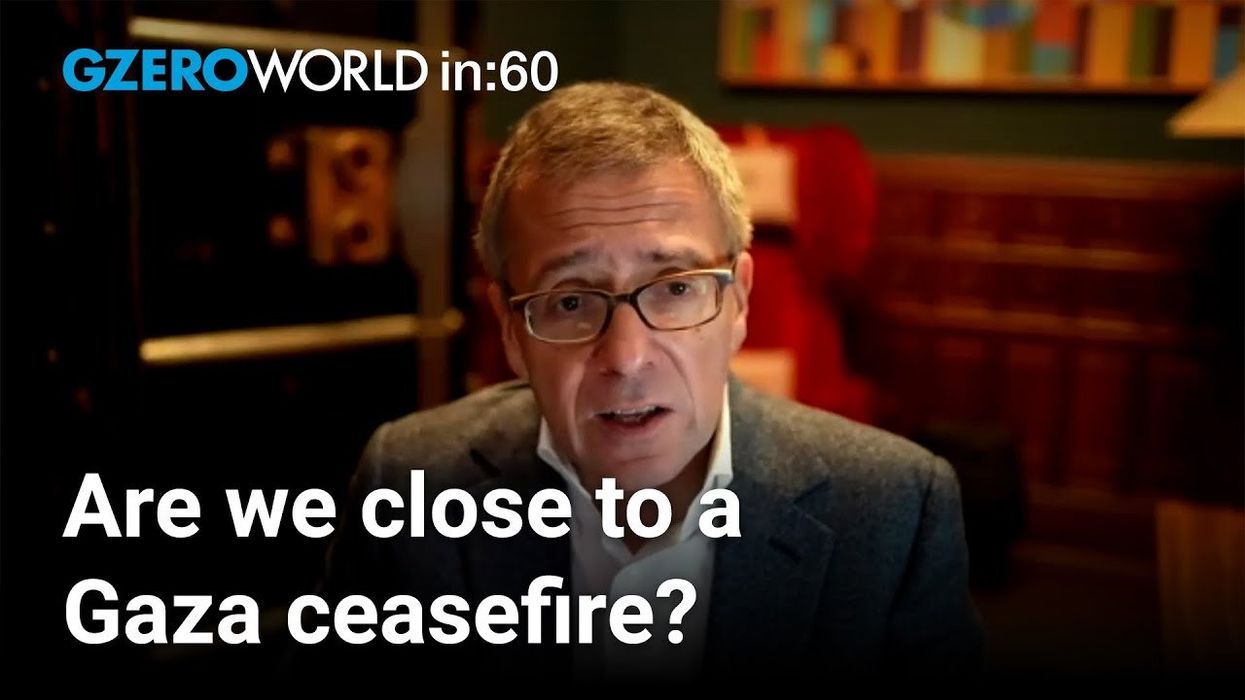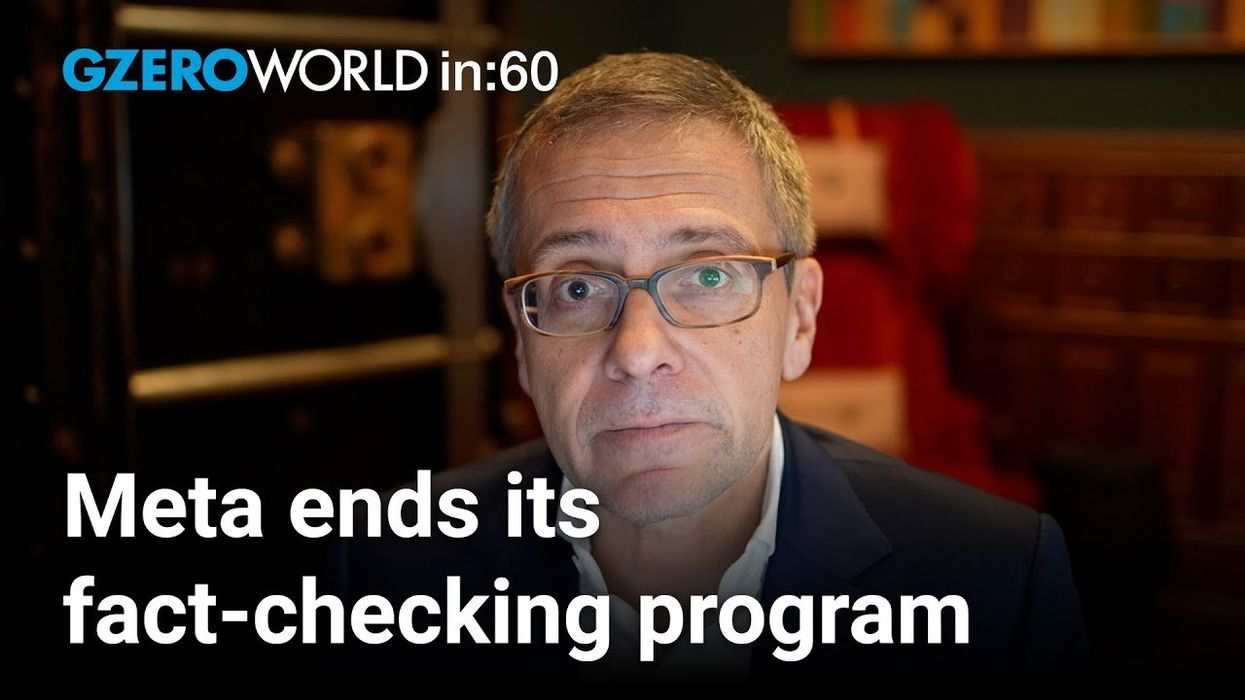VIDEOSGZERO World with Ian BremmerQuick TakePUPPET REGIMEIan ExplainsGZERO ReportsAsk IanGlobal Stage
Site Navigation
Search
Human content,
AI powered search.
Latest Stories
Start your day right!
Get latest updates and insights delivered to your inbox.
Ian Bremmer shares his insights on global politics this week on World In :60.
Does the Iran-Israel crisis offer a unique opportunity for diplomacy?
I don't think so. They certainly give an opportunity for a bunch of countries to reengage with Israel. We're seeing that with Jordan, with Saudi Arabia, and to show the Iranians that they are still considered to be the big concern as an enemy in the region, a disrupter. But that's very different from saying we're going to see a breakthrough in relations. You're not resetting deterrence. Iran is going to continue to lead the axis of resistance and provide weapons and intelligence and engage in strikes against targets across the region. Israel will still hit Iranians that are operating there. So going forward, I think the dangers are still pretty high.
Is Germany's Scholz meeting with Xi in Beijing indicating a shift in Europe-China trade tensions?
Not really. Here, the fact that Scholz has a large number of German CEOs in tow means that, yes, he's concerned that the Chinese are providing support to Russia, maybe even increasingly dual-use military support to Russia in the war in Ukraine. He's concerned about Chinese industrial policy that's undermining, the interests of Americans and Europeans economically. But ultimately he is very reliant on investment and trade with China, and he's going to continue to support that. He is not fully aligned with his government on this issue, not his advisors, not his foreign minister, and certainly not the other parties in the coalition. But it is Scholz's perspective. And as a consequence, it is going to be a pretty friendly trip.
Why is Sudan's year-long conflict gone largely unnoticed?
Well, we write about it a fair amount, but I mean, the fact that it is in a part of the world that doesn't have economic implications. So you blow up Ukraine, and Russia is in a fight, and energy prices and food and fertilizer prices go up. Major conflict in Sudan. A lot of people suffer, a lot of people die, but the rest of the world has no impact economically. Also, most of the refugees, people fleeing, fleeing to neighboring African countries, they're not coming over to Mexico, the United States or to Poland and to Germany. And that just doesn't lead to a lot of attention. Final point is that there aren't a lot of journalists on the ground from the West in Sudan. And so not a lot of people are actually covering this. So for all of those reasons, not getting a lot of attention, but we'll keep talking about it.
Keep reading...Show less
More from ask ian
Trump, loyalty, and the limits of accountability
December 16, 2025
Notre Dame, politics, and playing by their own rules
December 08, 2025
Trump threatens regime change in Venezuela
December 02, 2025
Is Trump’s trade strategy backfiring abroad?
November 25, 2025
Ian stands in line for a bagel, the internet melts down
November 21, 2025
Could Trump have handled the Epstein issue any worse?
November 17, 2025
Democrats divided over government shutdown deal
November 11, 2025
Zohran Mamdani and America's political future
November 04, 2025
Trump, Xi, and the new US–China standoff
October 14, 2025
US-China AI race: Dueling strategies and potential risks
October 07, 2025
Trump shifts on Russia: From carrots to sticks in Ukraine war
September 30, 2025
Trump’s UN speech: Sovereignty, security, and ending wars
September 23, 2025
Israel attacks and targets Hamas leadership in Qatar
September 10, 2025
US strike on vessel from Venezuela
September 03, 2025
Trump pulls US out of UNESCO, again
July 22, 2025
Trump announces new plan to arm Ukraine
July 15, 2025
Are NATO allies aligned on Iran?
June 24, 2025
Will Iran’s regime survive?
June 18, 2025
Trump-Musk rift over Trump's "big, beautiful bill"
June 04, 2025
What is Trump after in his latest Gulf states tour?
May 13, 2025
Why Mark Carney’s victory won’t heal the US-Canada rift
April 29, 2025
Trump tariff is starting a US-China trade war
April 08, 2025
What if Japan & South Korea sided with China on US tariffs?
April 01, 2025
US travel warnings issued by its closest allies
March 25, 2025
US-Canada trade war helps Mark Carney's election prospects
March 11, 2025
Why Trump won’t break the Putin-Xi alliance
March 04, 2025
Will Trump & Musk punish Brazil over Bolsonaro indictment?
February 19, 2025
Putin trolls Europe about "the master" Trump
February 04, 2025
DeepSeek puts US-China relations on edge
January 30, 2025
Gaza ceasefire likely as Biden and Trump both push
January 14, 2025
Meta scraps fact-checking program: What next?
January 07, 2025
GZERO Series
GZERO Daily: our free newsletter about global politics
Keep up with what’s going on around the world - and why it matters.







